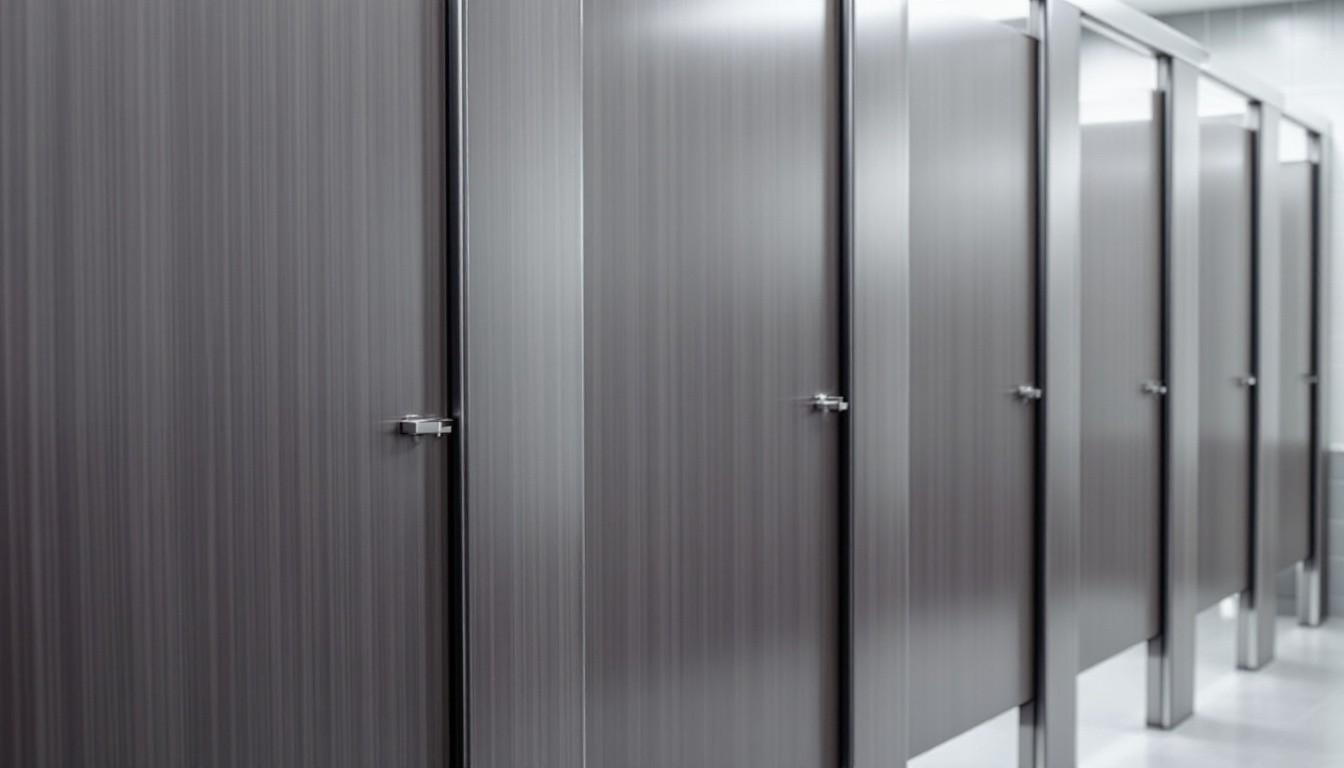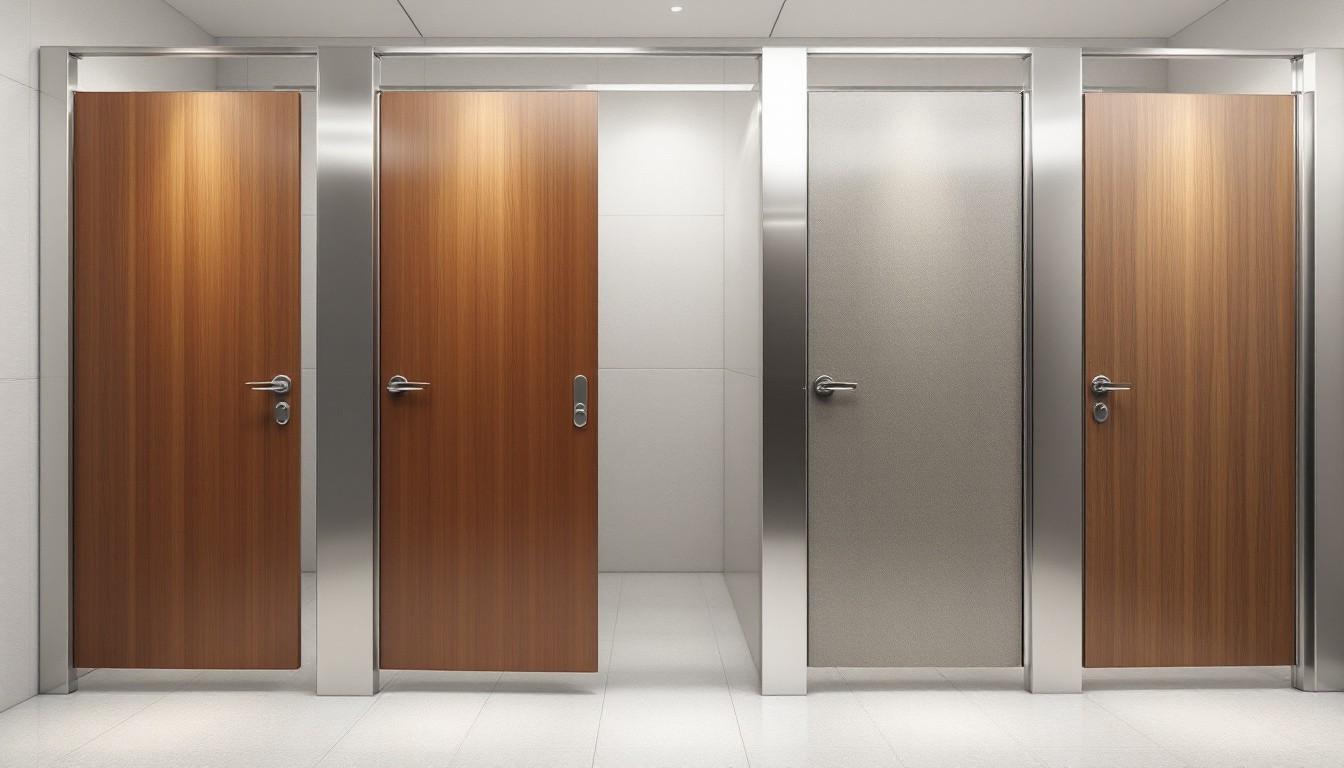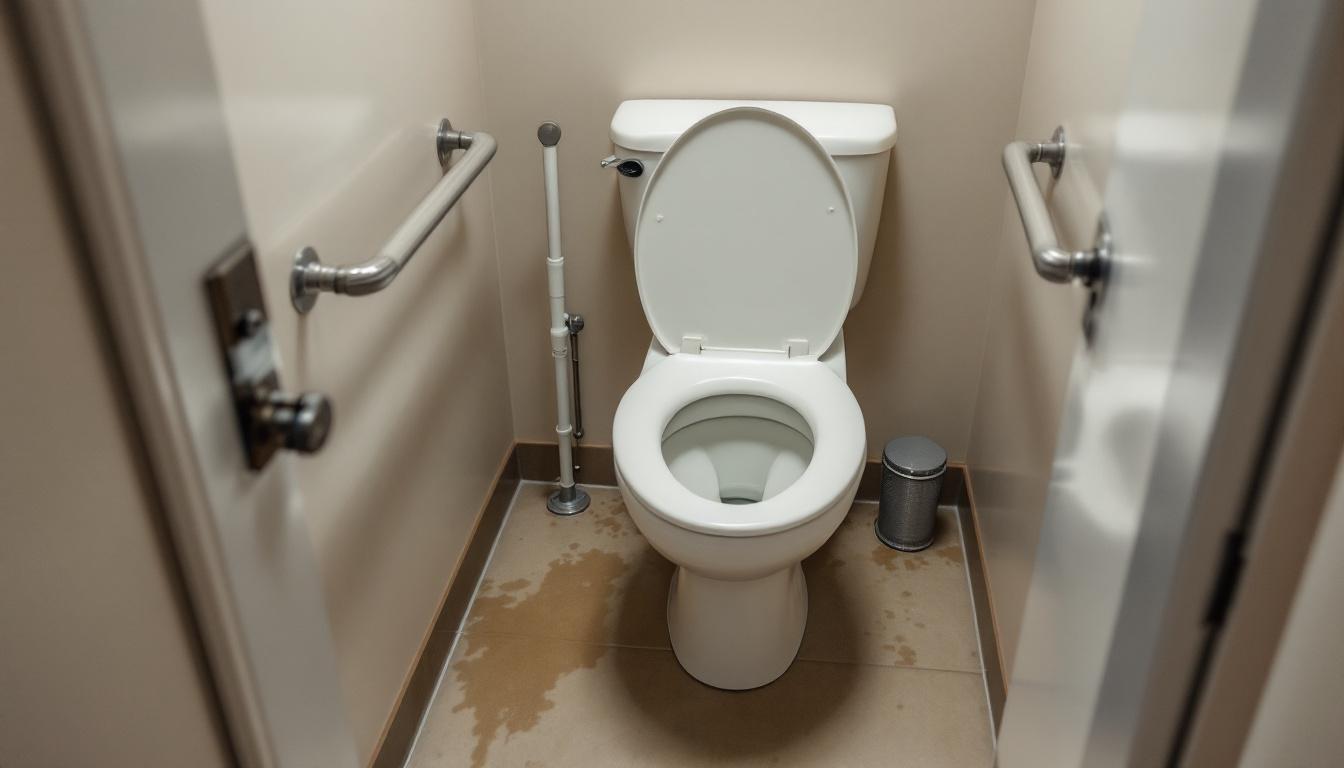At Partition Stalls, we understand that bathroom stalls prices are a crucial consideration for any facility manager or business owner.
Choosing the right bathroom partitions involves balancing cost, durability, and aesthetics. This guide will break down the factors that influence pricing and provide you with average cost ranges for different types of stalls.
We’ll also cover additional expenses to keep in mind, helping you make an informed decision for your restroom project.
What Drives Bathroom Stall Costs?
Material Selection
The choice of material stands as the primary cost driver for bathroom stalls. Powder-coated steel (starting at $275 per stall part) offers the most budget-friendly option. Plastic laminate begins at approximately $375 per part, providing a step up in quality and price. For high-traffic areas, solid plastic stalls start at $450 each, with an estimated overall cost of the average project around $1,600. At the premium end, phenolic and stainless steel partitions both start around $700 per part, offering superior longevity and aesthetic appeal.
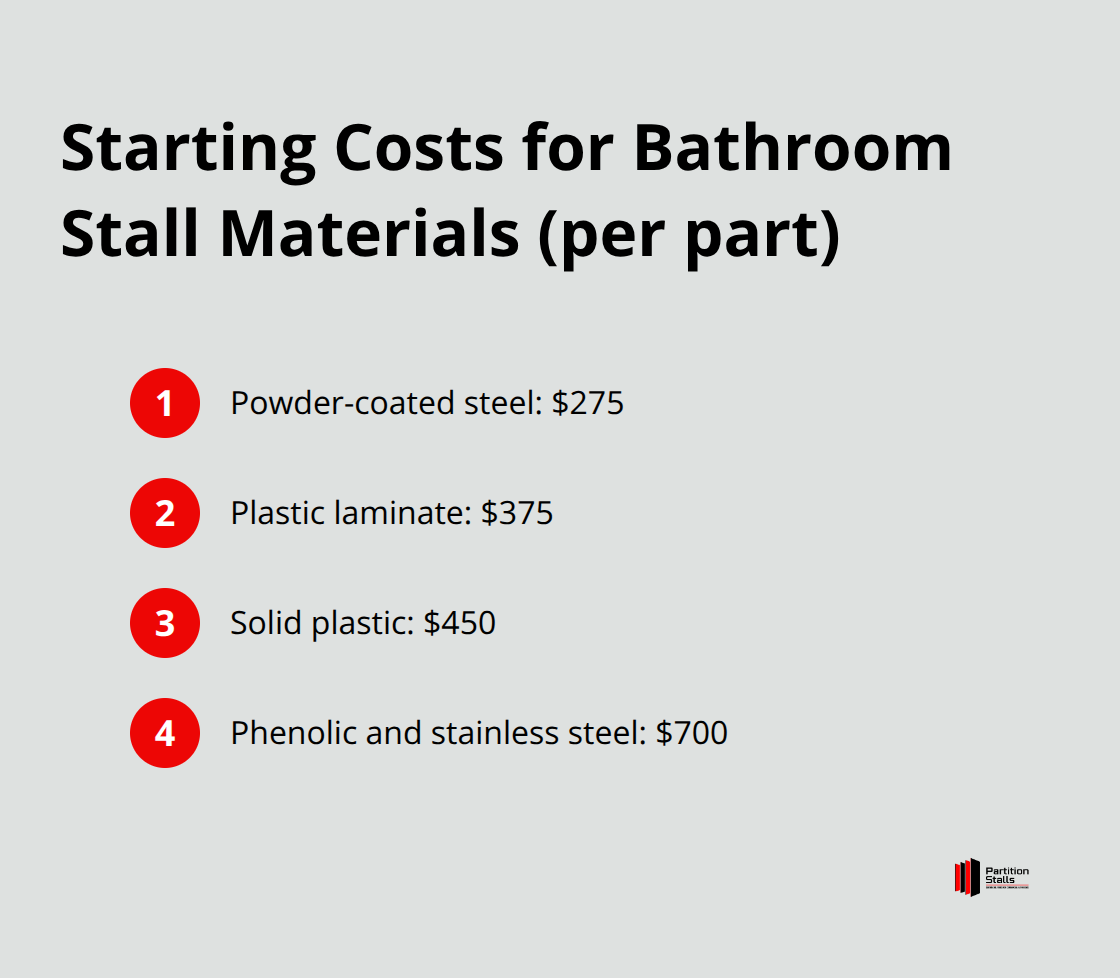
Size and Layout Impact
The dimensions and configuration of your restroom significantly influence costs. Larger spaces require more materials, which increases expenses. Complex layouts with multiple corners or unusual shapes may require custom-cut panels, adding to the overall price. An efficient layout can lead to substantial savings without compromising functionality.
Quantity Considerations
The number of stalls you need directly affects your bottom line. An interesting cost dynamic exists: ordering more stalls increases the total project cost but often reduces the per-stall price. This reduction occurs due to more efficient shipping (sending a half-empty pallet costs nearly the same as a full one). For instance, a project requiring 10 stalls will likely have a lower per-unit cost compared to a project with only 2 or 3 stalls.
Customization and Accessories
Custom features and accessories can quickly increase costs. Anti-graffiti finishes, unique color options, or metallic effects raise prices due to special raw material requirements. Hardware choices also impact pricing; sturdier or more visually appealing options (like stainless steel) will cost more than standard zamak fittings. Additionally, accessories such as coat hooks, toilet paper dispensers, or privacy strips all contribute to the final price.
Installation and Shipping Factors
Installation costs can vary significantly based on the complexity of the stall designs and the number of units. Typically, installation fees range from $500 to $1,200 per project. Shipping costs also play a role in the overall expense. Manufacturers with facilities on both U.S. coasts can potentially reduce shipping costs for shorter distances. However, large shipments to remote locations (such as Alaska or Hawaii) incur additional charges, increasing overall costs.
These factors provide opportunities for customization and value engineering. A careful consideration of each element allows you to create a restroom space that meets both your budget and functional needs. The next section will explore average cost ranges for different types of bathroom stalls, helping you make an informed decision for your specific project requirements.
Price Ranges for Different Bathroom Stall Types
At Partition Stalls, we’ve observed a wide spectrum of bathroom stall prices based on material quality and project specifications. This section breaks down the cost ranges for various types of bathroom stalls to help you select the best option for your facility.
Budget-Friendly Options
Plastic laminate stalls provide an affordable solution without sacrificing aesthetics. These partitions typically start at $375 per stall part, with project costs ranging from $875 to $1,575. They suit businesses that want to balance cost-effectiveness with a clean, professional appearance. While they are durable, plastic laminate partitions may not last as long as higher-end materials such as solid plastic or stainless steel.
Mid-Range Choices
Powder-coated steel stalls represent the sweet spot for many facility managers. Starting at approximately $275 per stall part, they offer durability and corrosion resistance at a competitive price point. The total project cost for powder-coated steel partitions can range from $622 to $1,000 per stall (depending on size and configuration). These stalls fit most commercial applications, providing a good balance of longevity and affordability.
High-End Materials
For premium restroom environments, stainless steel and phenolic core partitions top the list. Both start at around $700 per stall part, with total costs potentially reaching $1,200 to $1,500 per stall (including installation). Stainless steel offers unparalleled durability and a sleek, modern aesthetic. Phenolic core partitions provide exceptional resistance to moisture, chemicals, and bacteria, making them ideal for high-humidity environments or facilities with strict hygiene requirements.
Accessibility-Compliant Stalls
ADA-compliant stalls typically have different dimensions than standard stalls. A bathroom stall door will usually be 24 inches wide and 58 inches high, with the stall itself sitting at 36 inches wide and 60 inches deep. Most commercial facilities must include at least one accessible stall per restroom, so factor these costs into your restroom layout planning.
Long-Term Cost Considerations
The initial investment often correlates with long-term durability and maintenance costs. Budget-friendly options like plastic laminate may seem attractive upfront but might lead to higher replacement costs over time. High-end materials like stainless steel or phenolic core can provide significant savings through their extended lifespan and reduced maintenance needs.
To determine the most cost-effective solution for your restroom project, evaluate your facility’s specific needs, traffic levels, and budget constraints. The next section will explore additional costs to consider beyond the stalls themselves, helping you create a comprehensive budget for your restroom renovation or construction project.
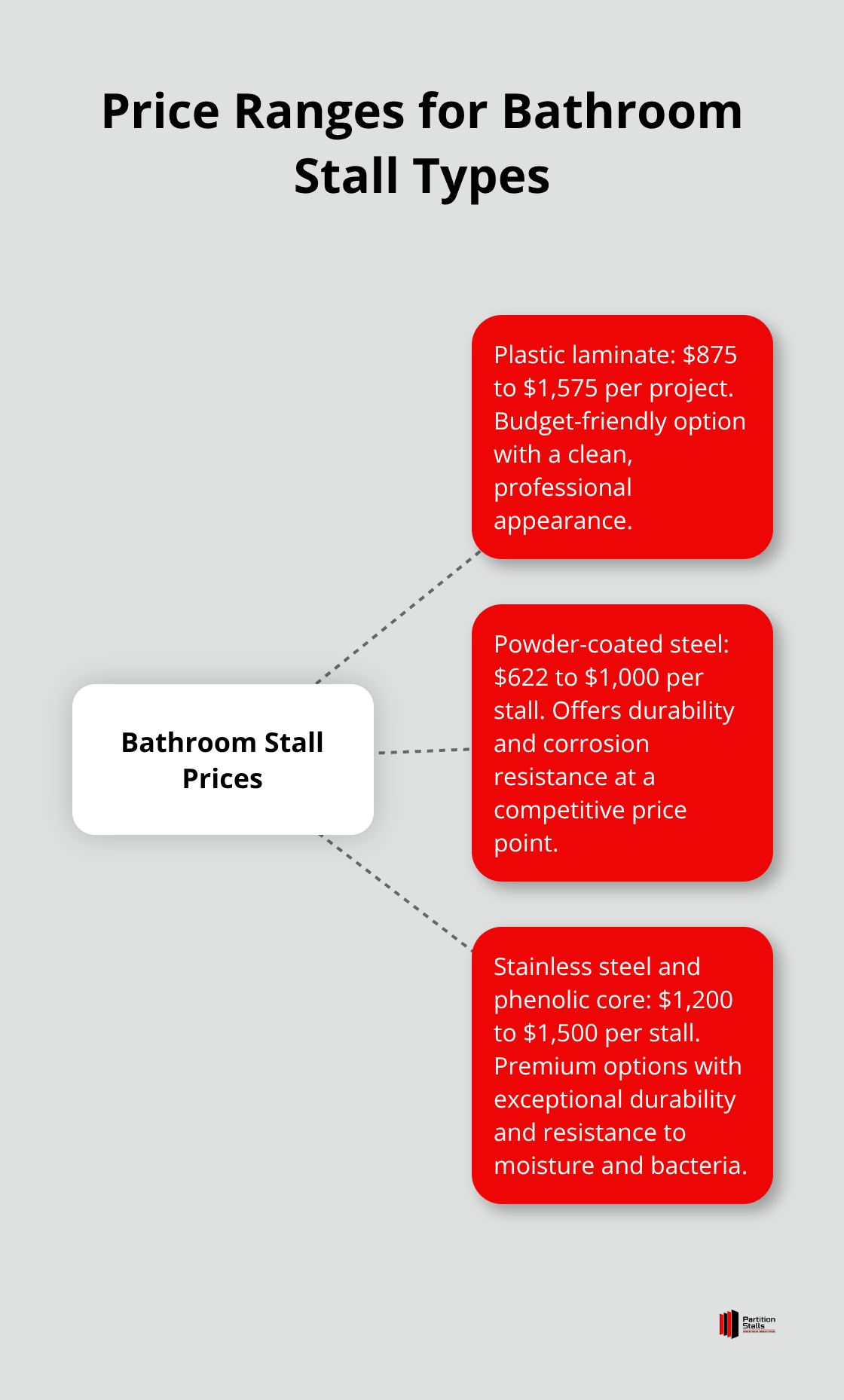
Hidden Costs of Bathroom Stalls
Installation Expenses
Professional installation of bathroom stalls adds a significant cost to your project. Standard setups typically range from $500 to $1,200. Complex layouts or high-end materials can increase this price. Floor-to-ceiling mounted stalls require more time and expertise, which pushes installation costs higher.
Shipping and Handling Charges
Shipping costs can substantially impact your total bill, especially for large orders or remote locations. Deliveries to Alaska or Hawaii often incur additional charges. To minimize these expenses, you can choose manufacturers with facilities on both U.S. coasts (reducing shipping distances). Ordering in bulk can lead to better value, as shipping a partially filled pallet often costs nearly the same as a full one.
Long-Term Maintenance Considerations
The total cost of ownership for bathroom stalls extends beyond the initial purchase. High-end materials like stainless steel or phenolic core partitions have a higher upfront cost but often require less maintenance over time. Budget-friendly options (such as plastic laminate) might need more frequent repairs or replacements. You should factor in the expected lifespan of your chosen material and potential maintenance needs when calculating long-term costs.
Accessory Costs
Bathroom stall accessories can add up quickly. Toilet paper dispensers, coat hooks, and privacy strips all contribute to the final price. High-quality hardware (like stainless steel fittings) costs more than standard options but can enhance durability and aesthetics. Anti-graffiti finishes or unique color options also raise prices due to special raw material requirements.
Compliance and Upgrades
Meeting accessibility standards often requires specific dimensions and features for at least one stall per restroom. ADA-compliant stalls typically cost more due to their larger size and additional hardware. A standard bathroom stall door is usually 24 inches wide and 58 inches high, with the stall itself measuring 36 inches wide and 60 inches deep. If your existing restroom layout needs modification to accommodate these requirements, you may incur extra construction costs.
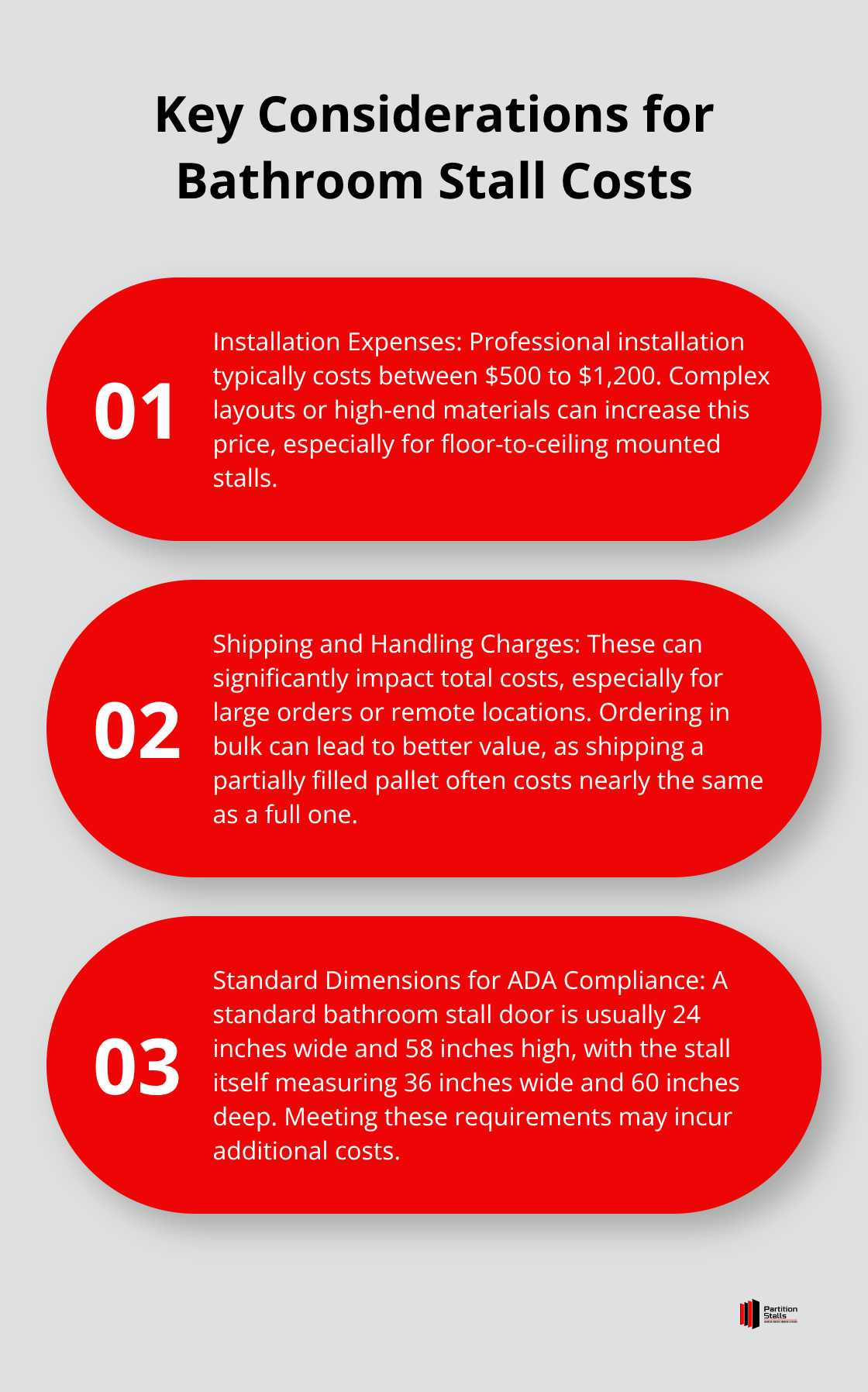
Final Thoughts
Bathroom stalls prices vary widely based on material quality and project specifications. Powder-coated steel starts at $275 per stall part, while high-end options like stainless steel begin around $700. The size of your restroom, number of stalls, and custom features all affect the final cost.
Quality and budget must be balanced when selecting bathroom partitions. Budget-friendly options may lead to higher long-term expenses due to increased maintenance and shorter lifespans. Durable materials like stainless steel or phenolic core offer superior resistance to wear and moisture, potentially reducing future costs.
We at Partition Stalls understand the complexities of choosing the right bathroom partitions for your facility. Our team offers expert guidance to help you navigate these decisions. For a free consultation on how to transform your restroom facilities, visit our blog for more information.


